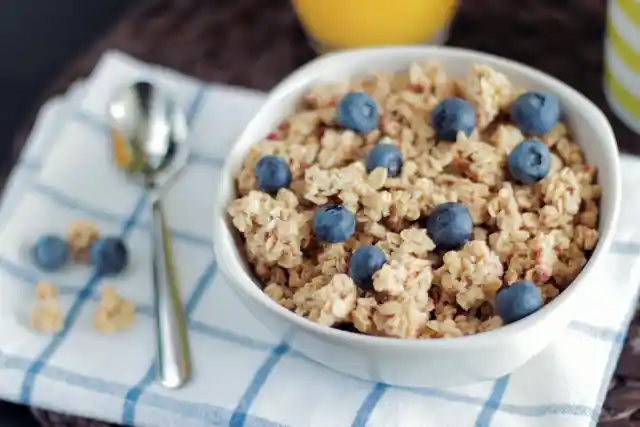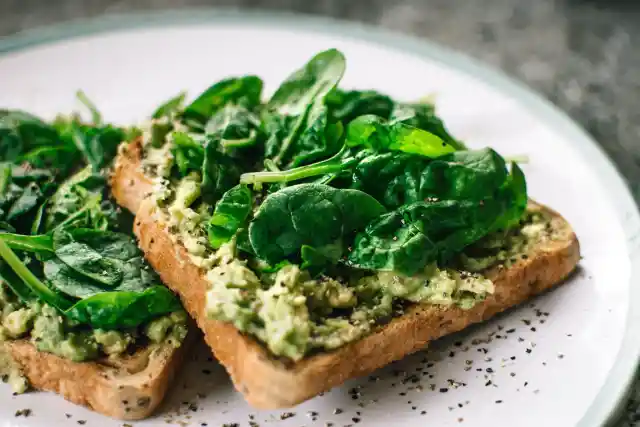Winter may not always feel like a happy time of year for some people, which might lead to emotional eating. This could be due to financial concerns, demanding schedules, or having to spend the holidays apart from specific loved ones.
However, the food you eat might help with this problem. Science still has a lot to discover about how our nutrition affects our moods. Even if we still don't know everything, we do have some hints.
The science of how food impacts our moods basically rests on this equation: Dietary changes affect our brain's physiology, chemistry, and structure, which results in — changes in behavior! Consider using the following foods in your daily meals to reap some of their feel-good effects throughout the holidays:
Dark Chocolate
According to studies, eating dark chocolate is linked to a decreased risk of experiencing clinically significant depression symptoms, with those who consume the most of it having a 57 percent lower risk than those who said they seldom eat it.


This may be associated with powerful antioxidants and anti-inflammatory compounds found in dark chocolate called cocoa polyphenols. Additionally, chocolate contains psychotropic substances that might make one feel good.
Coconut
Protein and fiber found in abundance in coconut flesh provide the body energy and lessen weariness. These proteins and fibers also help with digestion, aiding in healthy gut bacteria, promoting a stronger immune system, and ultimately leading to better overall health.


If you don't like the rich flavor of coconut meat, why not try cooking with coconut oil? Coconut oil is one of the most practical cooking oils. Its beautiful smell may simultaneously increase attention and reduce stress.
Fermented Foods
Since the digestive system produces around 95% of serotonin, focusing on gut health will help us feel better. Additionally, researchers are looking at the associations between intestinal flora and mental health.


Several meta-analyses came to the conclusion that probiotics can lessen depression. Probiotics are abundant in fermented foods like kombucha, sauerkraut, and dairy-free yogurt. They're one of our go-to foods for elevating our mood and are simple to cook at home. They're also excellent for boosting immunity.
Saffron
Although saffron is a relatively unfamiliar spice, it has long been used in traditional Persian medicine to improve mood. It is most frequently put to rice while it is cooking or steeped in hot water to make tea.


It is a common component in recipes like paella and risotto and has been shown to have potent anti-depressant effects, even at modest dosages.
Lentils
The B vitamin folate, which aids in the development of the neurological system, is abundant in these little but mighty pulses. Folate deficiency has been linked to depression, and increasing your intake can help improve your mood.


They are also rich in iron, protein, fiber, and vitamin B6, which our bodies need to build mood-enhancing neurotransmitters like serotonin and dopamine. Fiber helps manage blood sugar levels. Depression is linked to low levels of Vitamin B 6.
Blueberries
The antioxidant content of blueberries surpasses that of any other typical fruit or vegetable, providing a wealth of advantages for improving memory. Blueberries aid in mood regulation, memory enhancement, and brain aging prevention mostly because of a class of antioxidants called flavonoids.


Some analysts believe they may go much further. The anti-inflammatory properties of blueberries may benefit in the treatment of PTSD and other severe mental health issues.
Oysters
Oysters are said to be aphrodisiacs. But their mood-enhancing advantages extend well beyond the bedroom. Having a high zinc intake can help reduce anxiety.


Additionally, zinc enhances the quality of sleep, which is crucial for maintaining equilibrium. Once you get the hang of it, oyster eating can be enjoyable and instantly upbeat.
Brazil Nuts
A handful of Brazil nuts could well be the panacea for your poor mood. Brazil nuts are one of the foods that are highest in selenium, a mineral that helps to regulate mood and prevent depression.


According to research, those who are lacking in this mineral tend to be more angry and irritable and are more prone to experience anxiety. Bring a bag of these nuts with you everywhere you go for the perfect mood-enhancing snack.
Oats
Whole grains like oats might make you feel upbeat all morning long. They contain 8 grams of fiber in one uncooked cup, making them a fantastic source of fiber. Fiber helps in sluggish carbohydrate digestion, allowing for a gradual release of sugar into the circulation to maintain steady energy levels.


This is linked to more steady blood sugar levels, which are crucial for limiting irritation and mood swings. Although other whole-grain foods can also have a similar impact, iron-rich oats may be especially beneficial.
Fatty Fish
Fatty fishes such as salmon and albacore have quite an amount of omega-3 fatty acids. They help to enhance mood and depression prevention due to omega-3 fats' anti-inflammatory signaling molecules and structural significance in the brain.


Docosahexaenoic acid (DHA) and eicosapentaenoic acid (EPA), two particular omega-3s, have been linked to decreased levels of depression. DHA and EPA contribute in controlling the dopaminergic and serotonergic pathways, which are two processes of brain cell signaling.
Spinach
In addition to being a great source of antioxidants and vitamin K, which is crucial for bone and cardiovascular health, spinach is also a great source of B vitamins like folate.


B vitamin deficiencies have been related to depression because they limit the amount of serotonin generated in the brain, which is a chemical that helps control mood. Consuming spinach and other leafy green vegetables helps maintain healthy serotonin levels and enhance mood.
Coffee
A cup of caffeinated coffee may improve your mood in both the short and long term. Caffeine in coffee increases alertness and focus by preventing the naturally occurring substance adenosine from binding to brain receptors that encourage fatigue.


Researchers credited this improvement in attitude to a number of phenolic substances, including chlorogenic acid.
Banana
They contain high levels of vitamin B6, which is necessary for the synthesis of feel-good neurotransmitters like dopamine and serotonin. A big banana has 3.5 grams of fiber and 16 grams of sugar. When combined with fiber, sugar is slowly absorbed into the system, resulting in stable blood sugar levels and improved mood regulation.


Too low blood sugar levels often cause mood swings and irritation. Last but not least, this popular fruit from the tropics is a fantastic source of prebiotics, a type of fiber that supports the growth of good bacteria in your stomach, especially when the peel is still green.